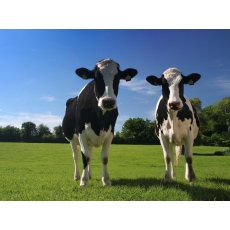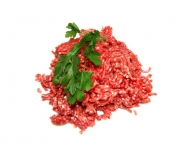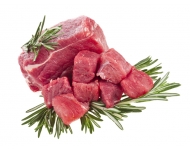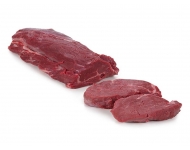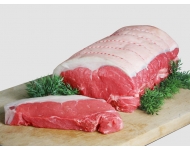Brands
The Nutritional Value Of Grass Fed Beef
Beef has a reputation for being unhealthy for your heart because of its saturated fat content. But grass-fed beef, which comes from cows that fed on grasses rather than on processed grains, may be more nutritious, according to the Mayo Clinic website. Still, grass-fed beef is healthiest when you eat it only in moderation as part of an overall balanced diet.
CALORIES, PROTEIN AND CARBOHYDRATES
A steak from grass-fed steer that weighs 214 g, or nearly 8 oz, contains 250 calories. It has 49 g of high-quality, or complete, protein, which means that it provides each of the amino acids that you need to get from the diet, according to the Harvard School of Public Health. The average adult needs about 46 to 56 g of protein per day, according to the 2010 Dietary Guidelines from the U.S. Department of Health and Human Services. Steak is free from carbohydrates.
FAT AND CHOLESTEROL
A grass-fed steak provides 6 g of total fat, including 2.2 g of saturated fat. Grass-fed beef is a low-fat choice for your protein, especially when compared to a fatty cut such as prime grade with the fat, which has 44 g of fat in the same size serving of 214 g. The grass-fed steak has 118 mg of cholesterol, which raises levels of LDL cholesterol in your blood. Healthy adults should have no more than 300 mg of cholesterol per day, according to the 2010 Dietary Guidelines from the U.S. Department of Health and Human Services.
MINERALS
The grass-fed steak has 7.7 mg of zinc, or 51 percent of the daily value. It has 4 mg of iron, or 22 percent of the daily value, and 49 mg of magnesium, or 12 percent of the daily value. Iron and magnesium are nutrients of concern because many Americans are at risk for inadequate intake, according to the 2010 Dietary Guidelines. The beef has 45 mcg of selenium, or 64 percent of the daily value for this antioxidant. It is a low-sodium food, providing only 118 mg of sodium toward the recommended daily maximum of 2,300 mg sodium.
VITAMINS
Steak from grass-fed beef has 14 mg of niacin, or 70 percent of the daily value. Niacin, or vitamin B3, is necessary for energy metabolism in your body, and symptoms of deficiency may include dermatitis or dementia, according to the Linus Pauling Institute Micronutrient Information Center. The beef has 1.4 mg of vitamin B6, or 70 percent of the daily value, and 0.3 mg of riboflavin, or 17 percent. Animal-derived foods such as meat, poultry, fish and dairy products, are the only natural sources of vitamin B-2. Grass-fed beef provides 2.7 mcg of vitamin B12, or 22 percent of the daily value
Article reviewed by Alison Gaynor Last updated on: Sep 1, 2011
Read more: http://www.livestrong.com/article/529125-the-nutritional-value-of-grass-fed-beef/#ixzz29HxGLMGE
Write a comment
Your Name:Your Comment: Note: HTML is not translated!
Enter the code in the box below:










